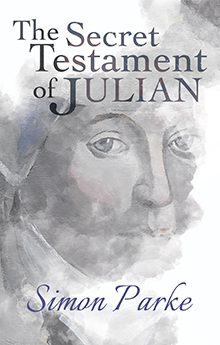
Julian of Norwich, contemporary of both Chaucer and Langland, was the first woman to write a book in English. Yet remarkably, she disappeared from view for 600 years, before her rediscovery in the 20th century.
This novel is Julian’s own telling of her life.
Julian of Norwich, contemporary of both Chaucer and Langland, was the first woman to write a book in English. Yet remarkably, she disappeared from view for 600 years, before her rediscovery in the 20th century.
A 14th century anchoress in Norwich, she lived in a cell for forty years, surrounded by plague, misogyny, inequality, violence and bigotry.
Yet Julian gave the world one of its most famous calls to hope: ‘All shall be well, and all shall be well and all manner of things shall be well.’
Who was she? Why did she pray for a near-death experience and then choose containment in a cell? And how, amid these traumatic times, did she speak with such optimism?
Imagined here is Julian’s own earthy telling of her life, a first person narrative. No plaster saint, we meet the woman beneath the halo, the genius amid the thorns.